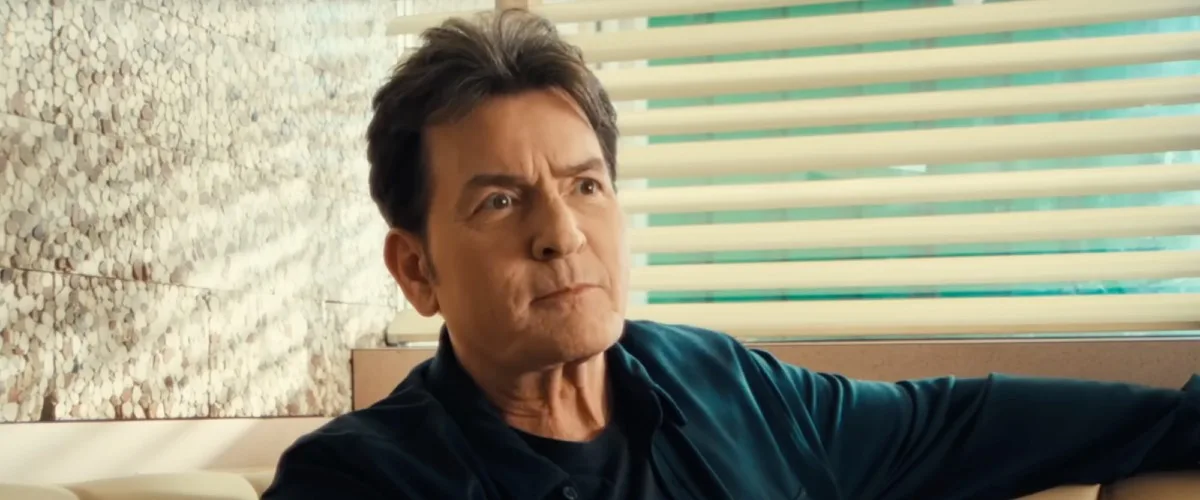
Charlie Sheen, renowned for his captivating roles and a notably tumultuous personal life, has recently provided an unfiltered glimpse into the extreme depths of his past drug addiction. These candid revelations, presented as he promotes his new tell-all memoir, “The Book of Sheen,” and a Netflix documentary titled “aka Charlie Sheen,” paint a stark picture of a life once dangerously spiraling out of control. The actor, now 60 and proudly eight years sober, has offered an unprecedented look into the severe consequences of his former lifestyle.
Among the most startling confessions is Sheen’s account of a Mexican cartel abruptly halting his drug supply due to the sheer volume he was attempting to acquire. This extraordinary situation, alongside other detailed descriptions of his addiction, underscores the alarming scale of his substance abuse. His interviews, notably with Channel 9 journalist Amelia Adams for Australia’s 60 Minutes, have brought these shocking details to public attention, emphasizing a dark chapter from which he has now decisively distanced himself.
Sheen’s extensive journey, marked by both remarkable professional accolades and profound personal wreckage, serves as a compelling narrative of addiction and eventual recovery. His willingness to openly confront these difficult chapters, ranging from professional downfall to intimate personal struggles, highlights a significant commitment to transparency. This article delves into the initial phase of these revelations, exploring the most impactful incidents that defined the height of his addiction and the immediate repercussions on his once-flourishing career and public image.
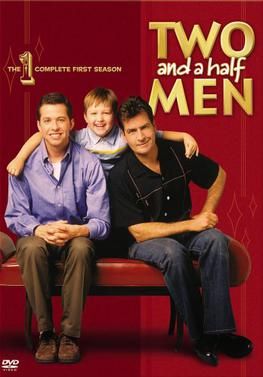
1. **Mexican Cartel Cuts Off Supply**Charlie Sheen shocked an Australian reporter when he revealed he was cut off from his drug supply by a Mexican cartel at the height of his drug use. Speaking to Amelia Adams on 60 Minutes, the former “Two and a Half Men” star recounted the cartel’s decision, which Adams herself noted with visible astonishment. Sheen confirmed the situation, detailing the unprecedented nature of his consumption.
He explained that the cartel had “never seen someone acquiring that kind of weight.” According to Sheen, the only other individuals to whom they delivered such substantial quantities were dealers. This led the cartel to suspect he was “dealing on the side” or “dealing without our permission,” an act that required “permission from the shot callers.”
Sheen elaborated on this during an interview on “Primetime” with Jesse Watters, stating, “The amount that they were selling to [his drug dealer] Marco [Abeyta]… the amount that he kept requesting from them at the frequency that he was asking for… they had never transferred that to someone who wasn’t dealing.” The cartel, he added, believed he was “blowing through this stuff so freaking fast.”
This extraordinary measure by a drug trafficking network underscores the extreme level of Sheen’s addiction. For a cartel to refuse a customer, even a high-volume one, suggests a level of personal consumption that defied their established understanding of individual use, compelling them to intervene due to their own operational protocols and suspicions.
The revelation paints a vivid picture of a life where addiction reached such a peak that it transcended typical client-supplier relationships within the illicit drug trade, marking a unique and disturbing aspect of Sheen’s past struggles with substance abuse.
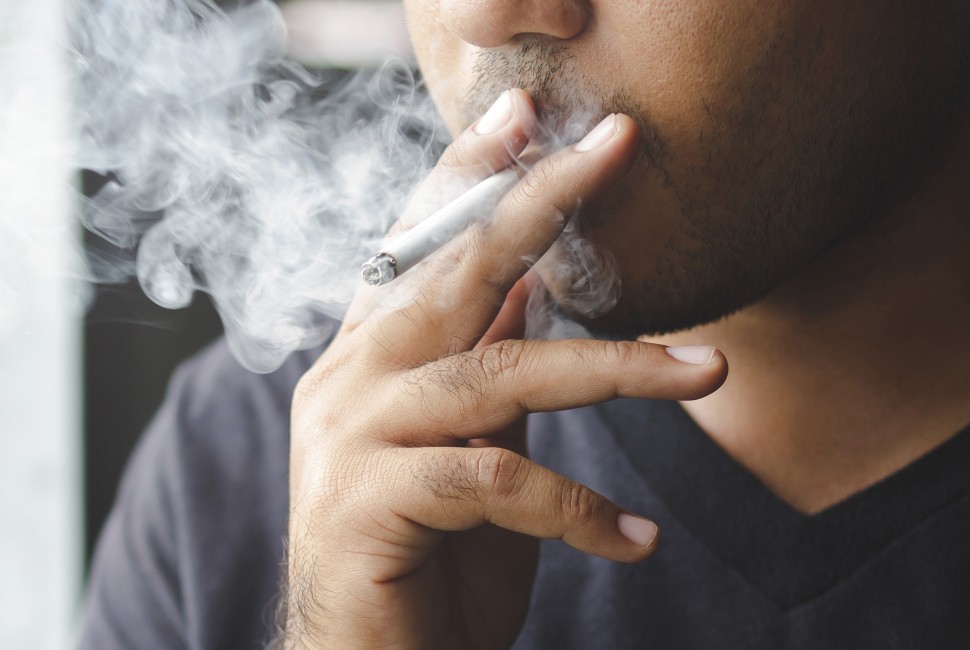
2. **Smoking “Seven-Gram Rocks” of Crack Cocaine**During the same compelling interview with Amelia Adams, Sheen was directly confronted with rumors regarding the staggering quantities of drugs he consumed. Adams probed, asking, “Is it true that you were smoking seven-gram rocks of crack cocaine?” This specific question aimed to ascertain the veracity of one of the more extreme tales surrounding his drug use.
Sheen, while noting the impossibility of precisely weighing rocks of crack cocaine in the moment, did not deny the essence of the claim. He responded, “Well, we never like took one out of the pipe and put it on a scale.” However, he clarified, “However, yeah, that was the amount that was cooked to get it into that form.”
Recalling a particularly vivid moment from his past, Sheen found a dark humor in the situation. He joked about an instance that brought to mind a famous movie line, stating, “I remember at one point the Jaws moment, ‘Uh, we’re going to need a bigger pipe.’” He then giggled, adding, “It’s kind of funny, no?”
Adams, while acknowledging the humor, quickly pivoted to the gravity of the situation. “It is funny, but it’s also, you are lucky to be alive,” she replied, visibly struck by the sheer volume of drugs Sheen was describing. Sheen, in turn, admitted, “I know.”
This exchange not only confirmed the significant scale of his crack cocaine use but also highlighted the incredible danger he routinely faced. The casual acknowledgment of such quantities, juxtaposed with the reporter’s stark reminder of his fortunate survival, underscores the life-threatening nature of his addiction at its peak.
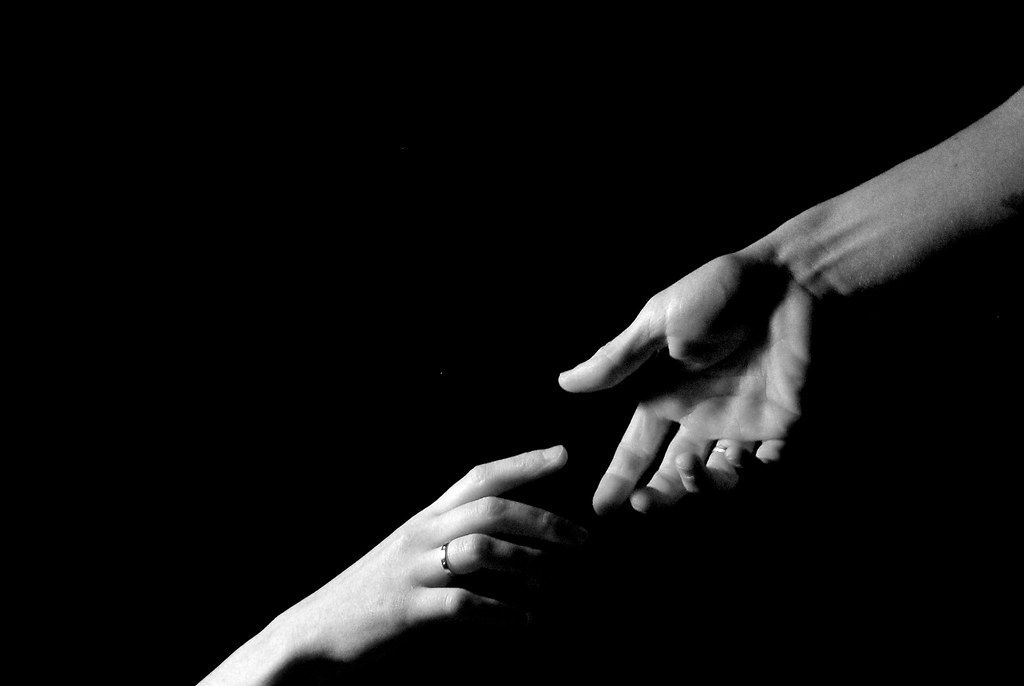
3. **Firing from “Two and a Half Men”**Charlie Sheen’s illustrious television career reached an abrupt and dramatic end in 2011 when he was sensationally axed from the immensely popular comedy sitcom “Two and a Half Men.” At the time, Sheen was the highest-paid actor on television, commanding a staggering $1.8 million per episode, a testament to his immense popularity and the show’s success. His termination by Warner Bros and CBS marked a significant turning point in both his professional and personal life.
The firing followed a string of highly publicized public outbursts and increasingly erratic behavior, which became synonymous with his struggles. The entertainment industry watched as Sheen’s personal battles spilled into his professional responsibilities, ultimately leading to the network’s decision to cut ties. This dramatic ousting cast a long shadow over his career, which had previously seen him as a leading man in both film and television.
Reflecting on how his eight-year stint on the series ended, Sheen expressed regret in his interview with Channel 9. He attributed the chaotic conclusion to an “imperfect storm of way too much stuff going on behind the scenes in my personal life.” This acknowledgment points to the profound impact his off-screen struggles had on his professional conduct and ultimately, his employment.
He further explained the personal turmoil he was enduring concurrently, stating, “And I had back-to-back failed marriages. And then in the middle of all that, [I was] still trying to be front and center for my children, you know.” He emphasized the intensity of this period, noting, “I went through two divorces and had four children in an eight-year run on that show.”
The vacancy left by Sheen’s departure on “Two and a Half Men” was subsequently filled by actor Ashton Kutcher. The abrupt change signaled not only the end of an era for the hit sitcom but also a severe blow to Sheen’s career, directly linking his addiction and behavior to professional consequences.
Read more about: From Fan Favorites to Farewell: 15 Iconic TV Stars Who Left Their Hit Shows and How the Story Continued

4. **Public Outbursts and Conflict with Chuck Lorre**Central to Charlie Sheen’s tumultuous departure from “Two and a Half Men” were his highly public and often vitriolic outbursts, particularly directed at the show’s executive producer, Chuck Lorre. These public confrontations reached a peak in February 2011, attracting widespread media attention and contributing significantly to the unraveling of his career with the network. His behavior during this period was a clear manifestation of his deteriorating personal state.
Among the numerous public criticisms, Sheen specifically targeted Lorre in an interview with TMZ. He declared that he “violently hated” Lorre, proceeding to label him “a stupid, stupid little man.” This inflammatory language escalated quickly, with Sheen further challenging Lorre to a physical fight, an action that underscored the severity of their personal and professional rift.
These public condemnations were not merely casual criticisms but aggressive verbal attacks that created an untenable working environment. Sheen’s actions were perceived as a direct challenge to the authority and integrity of the show’s production team and network executives, making reconciliation exceedingly difficult at the time.
However, in recent years, Sheen has indicated a shift in his perspective regarding this past conflict. He mentioned in his interview with Channel 9 that he has since “mended bridges” with Chuck Lorre. This signifies a personal growth and a desire to reconcile past grievances, acknowledging the damage caused by his actions during his period of addiction.
The initial conflict, nevertheless, played a pivotal role in his termination, illustrating how deeply his personal struggles impacted his professional relationships and ultimately led to his removal from one of television’s most lucrative roles. His reconciliation with Lorre now represents a step forward from that period of intense public and personal strife.
Read more about: Beyond the Red Carpet: Unmasking Hollywood’s Top 15 Most Difficult Actors to Work With
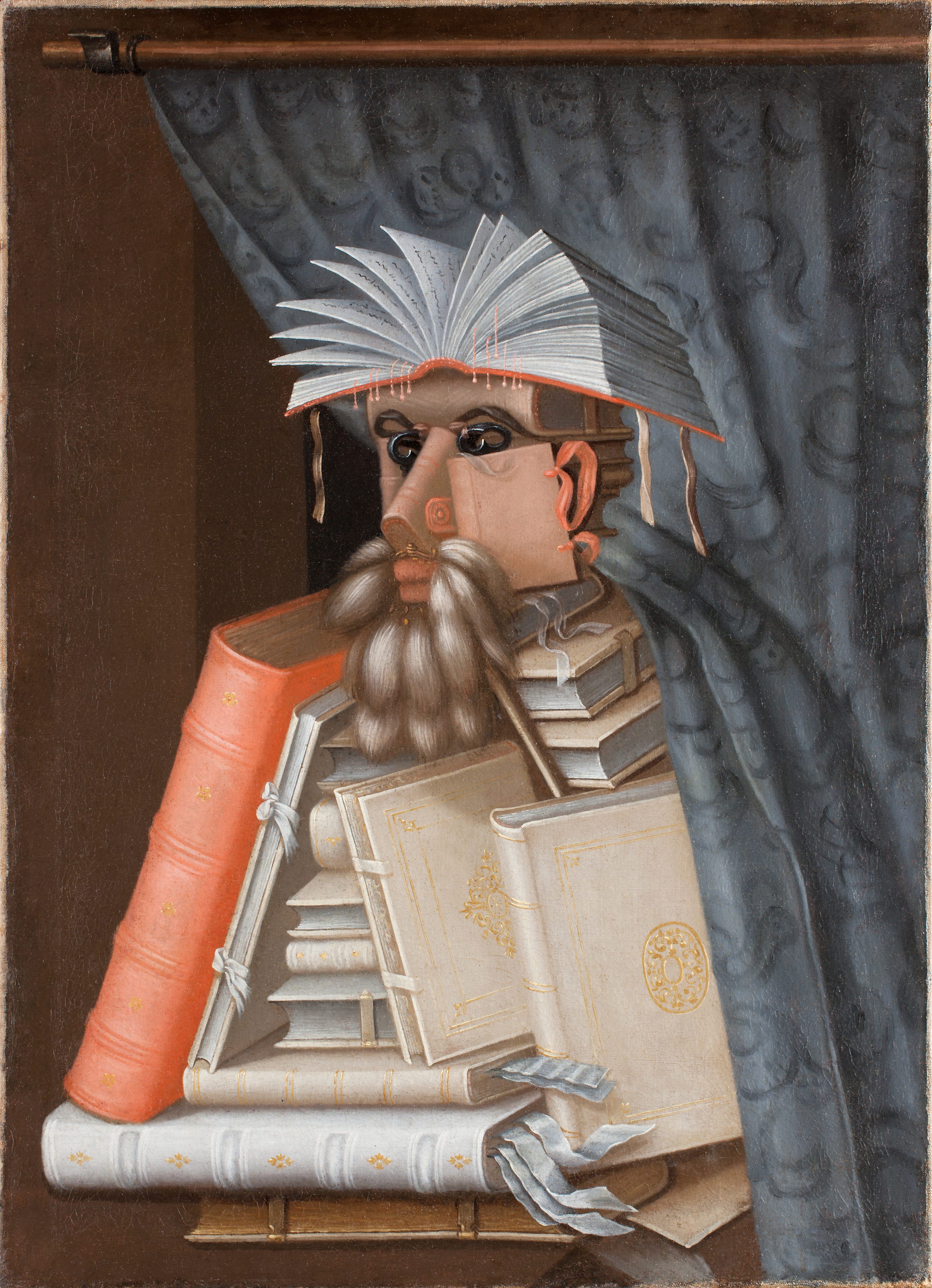
5. **Revelation of Sexual Encounters with Men and Extortion**In a series of deeply personal disclosures within his new memoir and documentary, Charlie Sheen opened up about a previously undisclosed aspect of his private life: that he had previously slept with men. This revelation was not merely a casual admission but a strategic and deeply personal decision driven by past experiences of extortion. Sheen described these as “salacious book revelations,” offering a candid look into vulnerabilities he once fought to conceal.
Sheen explained that he was being extorted by multiple sexual partners for sums reaching up to “seven-figure” amounts. The continuous threat of exposure weighed heavily on him, forcing a choice between continued silence under duress or the liberation of truth. He stated his motivation clearly: “I just wanted to feel what it would be like to just expose that. Not expose that, but to share that and it’s fine.”
A significant factor in his decision was a desire to neutralize the power of those holding information over him. He articulated this by saying it was “to take the bullets out of some guns that have still been pointed in my direction. And just like say, ‘You no longer have any control over me with your extortion demands.’” This act of revealing his truth was, for him, a means of reclaiming control over his own narrative.
In an interview with People magazine, Sheen reflected on these experiences, referring to them as the “other side of the menu.” He clarified that these relationships occurred while he was using crack, explaining, “That’s what started it. That’s where it was born, or sparked. And in whatever chunks of time that I was off the pipe, trying to navigate that, trying to come to terms with it — ‘Where did that come from?… Why did that happen?’ — and then just finally being like, ‘So what?’ So what?'”
He further acknowledged the complexity of these encounters, stating, “Some of it was weird. A lot of it was f***ing fun. And life goes on.” His decision to reveal these experiences, including the extortion, marked a pivotal step in his journey toward greater transparency and freedom from the shadows of his past, as he aims to “flip the menu over” and not let his past own him.
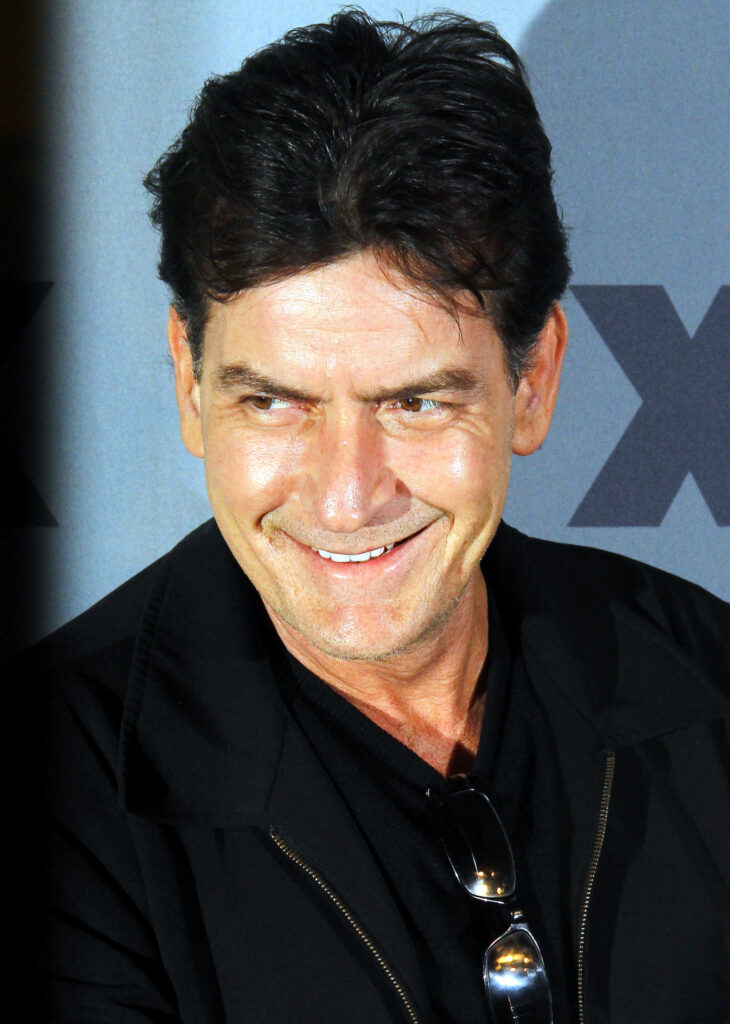
6. **Eight Years of Sobriety and Personal Reflection**Charlie Sheen, now proudly 60 years old, has achieved a significant milestone, celebrating nearly eight years of sobriety. This sustained period of recovery stands in stark contrast to decades marked by notorious struggles with drug and alcohol abuse. His current state represents a profound transformation from the “hedonistic lifestyle” that once defined his public image.
Sheen revealed the critical turning point in his journey, explaining that his decision to stop doing drugs stemmed from a fundamental realization: “It stopped working.” He elaborated on this, stating, “I had to get to a place I had to make the decision, you know, and I had to do it for myself first, my children second, and then the rest of my family.” He found that there was “no bigger party to attend. There was no higher high left.”
His life today is characterized by a “very consistent lifestyle,” centered primarily on his role as a single father to his 14-year-old twin boys, Max and Bob. He detailed a structured daily routine, saying, “Now I wake up early, around 4:30 or 5am, get an early jump on the news, work out, answer emails.” Following this, he focuses on his children: “Then I get the kids up and help them with their morning routine—if you can call it a routine.”
Sheen expressed immense pride in the profound changes he has implemented. He conveyed to People magazine that he is “proud of the choices that [he’s] made and the changes [he’s] made to live a life today that will never look like that mess’ of the past.” This statement powerfully encapsulates his commitment to a new way of living.
Reflecting on his past self, Sheen described his former persona as “some alien version of myself.” This sentiment highlights a clear and deliberate separation from the destructive behaviors and chaotic existence that once dominated his life, marking a definitive embrace of his sobriety and a focus on present well-being and family.
Read more about: Beyond the Spotlight: 15 Celebrities Who Bravely Share Their Private Struggles with Mental Pressure
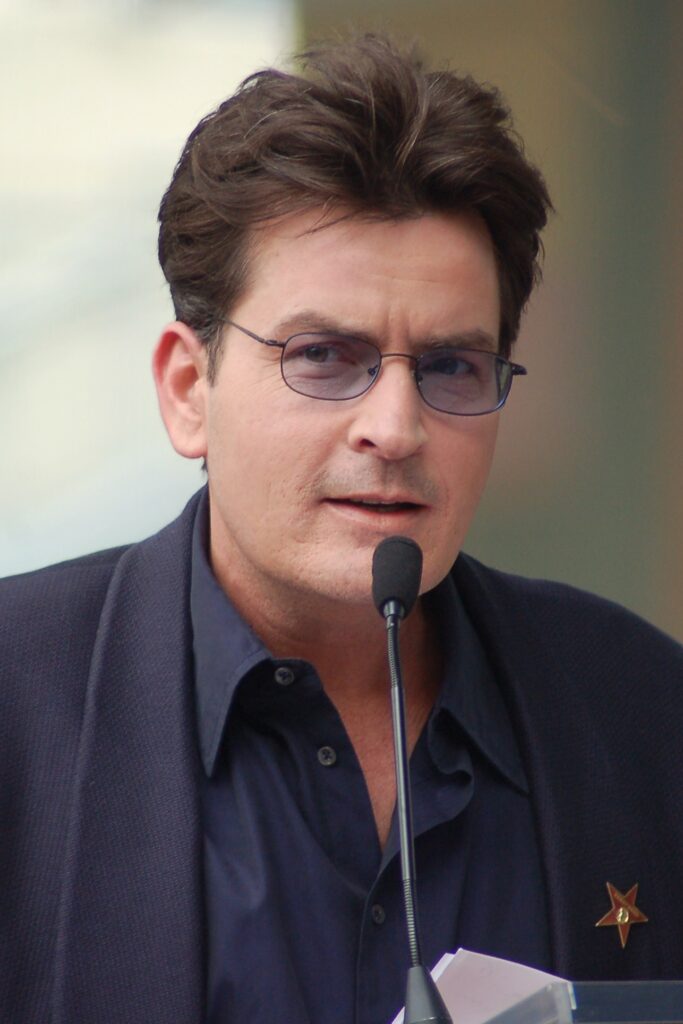
7. **First Rehab Stint in 1990 and Early Addictions**Charlie Sheen’s battle with addiction dates back decades, with his first documented entry into rehab occurring in 1990 at the relatively young age of 24. This initial attempt at recovery was not voluntary but the result of a concerted intervention orchestrated by his concerned father, Martin Sheen, who famously joined forces with co-star Clint Eastwood while Charlie was filming “The Rookie.” This early intervention highlighted the deep concern among his closest family and colleagues.
Despite the gravity of the intervention, Sheen’s immediate reaction demonstrated his deep-seated resistance to sobriety. He recounts in “The Book of Sheen” how, during his drive to a Los Angeles facility, his primary thought was not recovery but how to escape and join fellow actor Nicolas Cage in judging a Hawaiian Tropic bikini contest in Palm Springs. This defiant mindset set the tone for his early struggles with rehabilitation.
Remarkably, Sheen managed to orchestrate an escape. He successfully left the facility, indulging in a cocaine and ecstasy blowout with a group of friends he referred to as the “Jackson Five” and a “lovely gal.” His return to rehab was facilitated by a brazen act: he promised his nurse a staggering $1 million if he wasn’t back in his room by 9 AM, a promise he incredibly kept after staggering back on a private jet.
His struggle with substance abuse, however, began even earlier in his life. Sheen admitted to smoking cannabis by the age of 11. By 15, he lost his virginity to a redhead prostitute named Candy in Las Vegas, an encounter he paid for using his father’s credit card while Martin Sheen slept nearby. These formative experiences paint a picture of a childhood where boundaries were frequently crossed and risky behaviors were normalized.
This early pattern of defiance, combined with deeply ingrained habits from a young age, illustrates the formidable challenge Sheen faced in overcoming his addictions. His repeated escapes from treatment and continued drug use established a cycle of addiction that would plague him for many years before he finally found lasting sobriety.
Read more about: Beyond the Limelight: Deconstructing Why Child Stars Often Struggle to Thrive as Adults
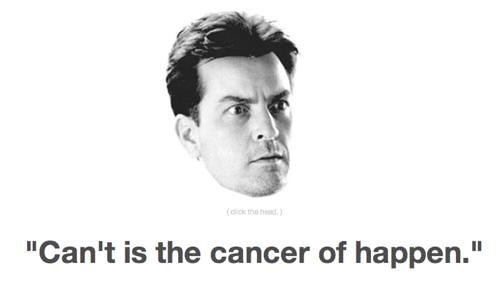
8. **1998 Cocaine Overdose and Early Legal Troubles**Charlie Sheen’s tumultuous journey through addiction included severe health crises and legal repercussions, highlighting a relentless cycle of self-destruction. A particularly alarming incident occurred in 1998 when he suffered an accidental cocaine overdose. This life-threatening event was averted only because his bodyguard discovered him, underscoring the extreme dangers of his drug use.
Following this overdose, Sheen absconded from rehab for a second time. His father, Martin Sheen, informed the police that Charlie had violated his probation by taking cocaine, a move Sheen described as “the biggest betrayal you could possibly imagine.” This action led to his being turned in for violating probation terms after a domestic battery conviction against an ex-girlfriend, highlighting a pattern of legal challenges intertwined with his substance abuse.
Between 1990 and 2010, Sheen was convicted of multiple misdemeanors. Despite being sentenced to another rehab stint after the 1998 incident, his bodyguard facilitated continued drug use by throwing crack cocaine over the wall to him. This demonstrated the deep-seated nature of his addiction and the challenges faced in achieving genuine rehabilitation.
Read more about: The Price of Early Stardom: 12 Child Actors Whose Careers Took a Tumultuous Turn After One Unforgettable Role
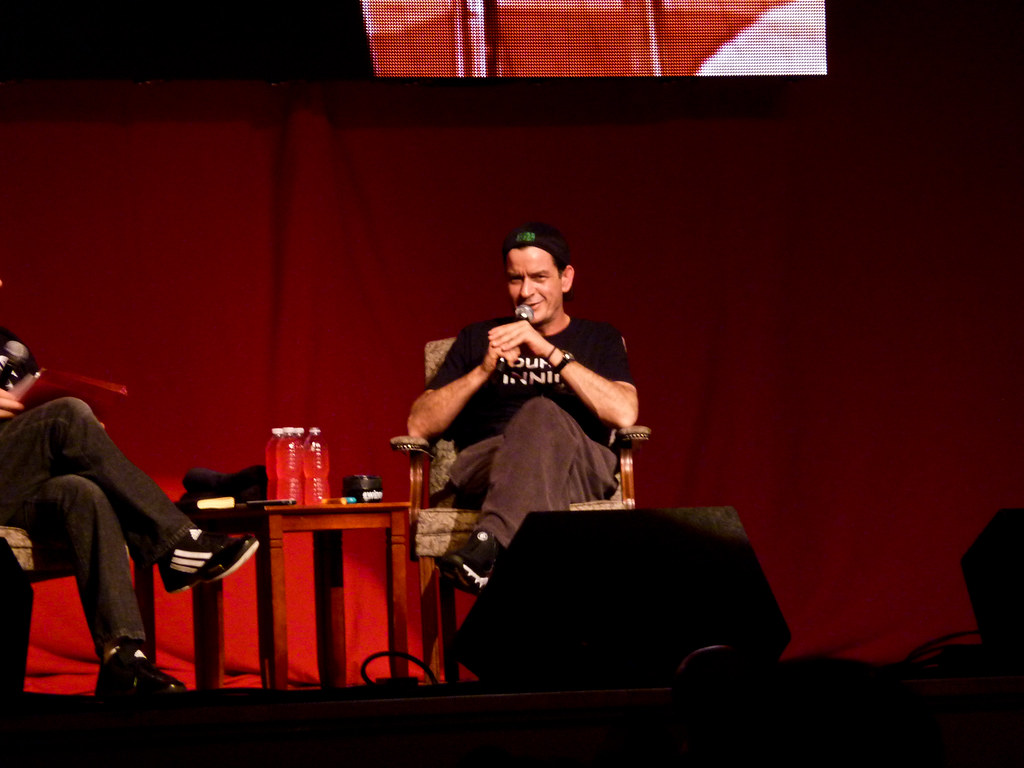
9. **Domestic Violence Convictions and Subsequent Rehab Stays**The consequences of Charlie Sheen’s addiction extended beyond personal health, impacting his relationships and leading to further legal entanglements. His battle with substance abuse saw him relapse with prescription pills, culminating in another conviction for domestic violence, this time against his wife. These incidents reflected a deepening crisis in his personal life, exacerbated by drug use.
Following an episode where he reportedly trashed a hotel room, Sheen admitted cocaine use to authorities, leading to another month in rehab. The continuous cycle of addiction, public fallout, and mandated treatment became a prominent feature of his life during this tumultuous era, with multiple stints in rehabilitation facilities.
His persistent issues of drug abuse and violence created an unsustainable environment, leading to significant changes in both his career and personal life, including his firing from “Two and a Half Men.” The arduous nature of his journey underscored how deeply his personal struggles impacted his professional and private spheres.
Read more about: The 10 Most Disliked Celebrities of 2025: Why These Stars Couldn’t Escape Public Disdain
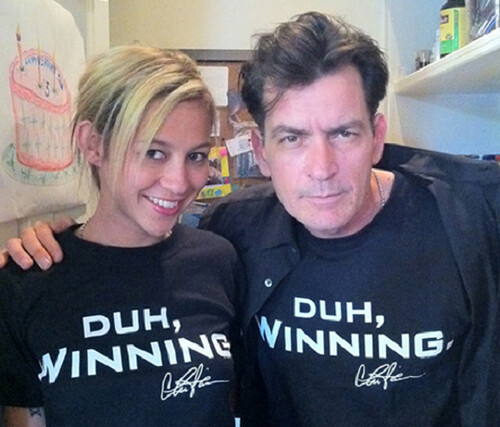
10. **The Catalyst for Change: Daughter Sami’s Disappointment**A pivotal moment on Charlie Sheen’s path to lasting sobriety occurred in late 2017, triggered by a profound realization concerning his daughter, Sami. Sheen vividly recounted a day when he was meant to pick her up from an appointment but found himself unable to drive due to being under the influence, having consumed whisky-laced coffee. This incident served as a stark reflection of his incapacitation.
The embarrassment forced a friend to drive, leaving Sami in quiet observation. Sheen imagined her silently questioning, “Why is Dad not driving — again? … When will Dad ever return? I miss him.” This moment of profound disappointment and perceived loss became the crucial catalyst for his transformation.
Belatedly realizing the deep impact his actions had on his family, particularly his children, Sheen made a definitive decision to clean up his act. This personal vow, born out of a desire to be a present and reliable father, marked the beginning of his sustained sobriety and a personal commitment to his family.
Read more about: Fact Check: 14 Biopics So Inaccurate Their Real-Life Subjects Would Be Absolutely Fuming!
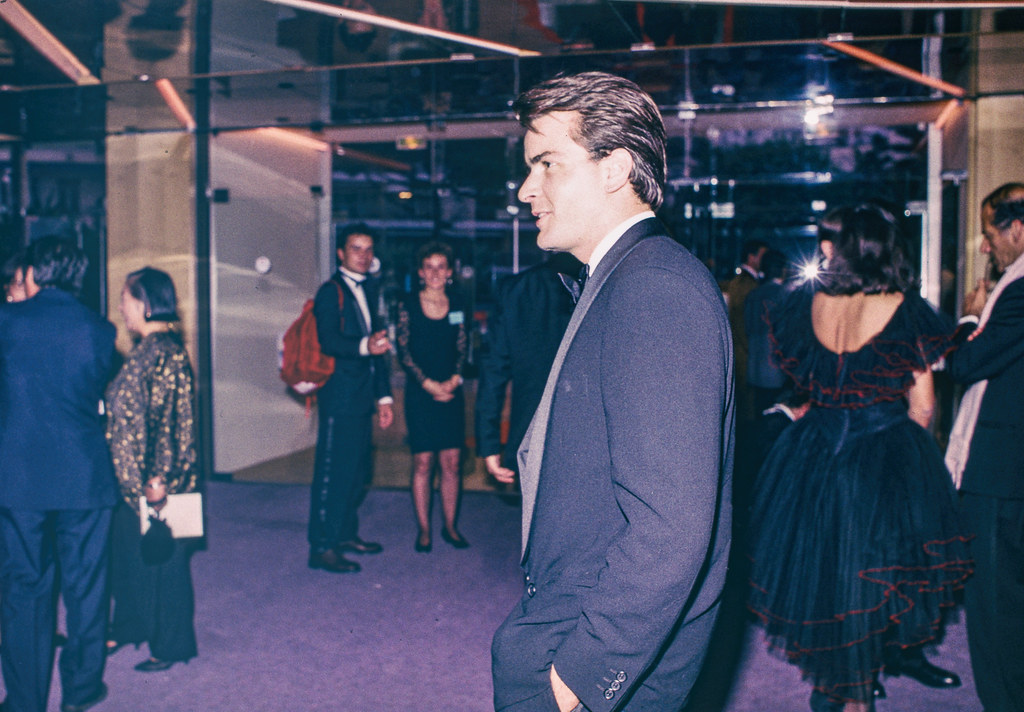
11. **Embracing a Sustained Sobriety and Structured Daily Life**Now proudly approaching eight years of sobriety, Charlie Sheen, at 60 years old, has achieved a remarkable transformation from his previously chaotic existence. This sustained period of recovery signals a definitive break from the “hedonistic lifestyle” that once characterized his public image.
Sheen pinpointed the critical turning point as the moment he realized his drug use “stopped working.” He explained, “I had to get to a place I had to make the decision… for myself first, my children second, and then the rest of my family.” For him, there was “no bigger party to attend. There was no higher high left,” leading to a loss of luster.
His current life is defined by a “very consistent lifestyle,” focused on his role as a single father to his 14-year-old twin boys, Max and Bob. He detailed a structured daily routine, beginning early, working out, answering emails, and then helping his children with their morning routine. This dedication underscores the profound personal changes he has embraced.
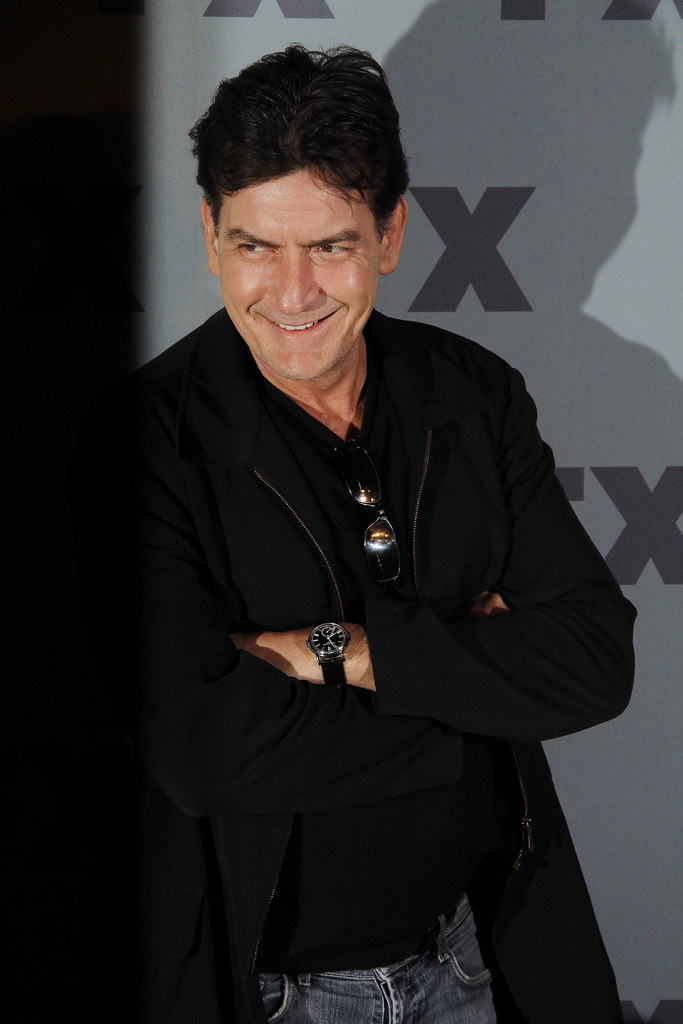
12. **Profound Reflections on Transformation and Embracing a New Chapter**Charlie Sheen’s journey from notorious wildman to a man of sustained sobriety is accompanied by profound reflections on his past self and a clear vision for his future. He expressed immense pride in the transformative choices he has made, conveying to People magazine that he is “proud of the choices that [he’s] made and the changes [he’s] made to live a life today that will never look like that mess’ of the past.”
Reflecting on the destructive persona that once defined him, Sheen described his former self as “some alien version of myself.” This powerful sentiment highlights a deliberate separation from the chaotic existence and destructive behaviors that once dominated his life, marking a definitive embrace of his sobriety and a focused commitment to his present well-being and his family.
His commitment to honesty and self-ownership is evident in his desire to “flip the menu over” and not allow his past to “own” him. This perspective, along with his admission that he wasn’t trying to make excuses, signifies a mature approach to his history, acknowledging the pain he caused while asserting his current agency. Despite skepticism from some friends regarding his sobriety, Sheen’s current demeanor and consistent lifestyle embody a determination to maintain his recovery, showcasing a transformative journey toward a healthier, more accountable existence.
Read more about: From Nose Twitches to Malibu Beaches: Unveiling the Extraordinary Life of Bewitched’s Erin Murphy at 61
Charlie Sheen’s candid journey from the depths of addiction, including being cut off by a cartel and facing severe health and legal battles, to his present state of eight years of sobriety offers a compelling narrative of resilience. His willingness to expose vulnerabilities, mend past divisions, and prioritize his family underscores a profound personal evolution. As he steps into this new chapter, Sheen not only reclaims his narrative but also provides a powerful testament to the possibility of transformation, even after a lifetime of public struggles.



